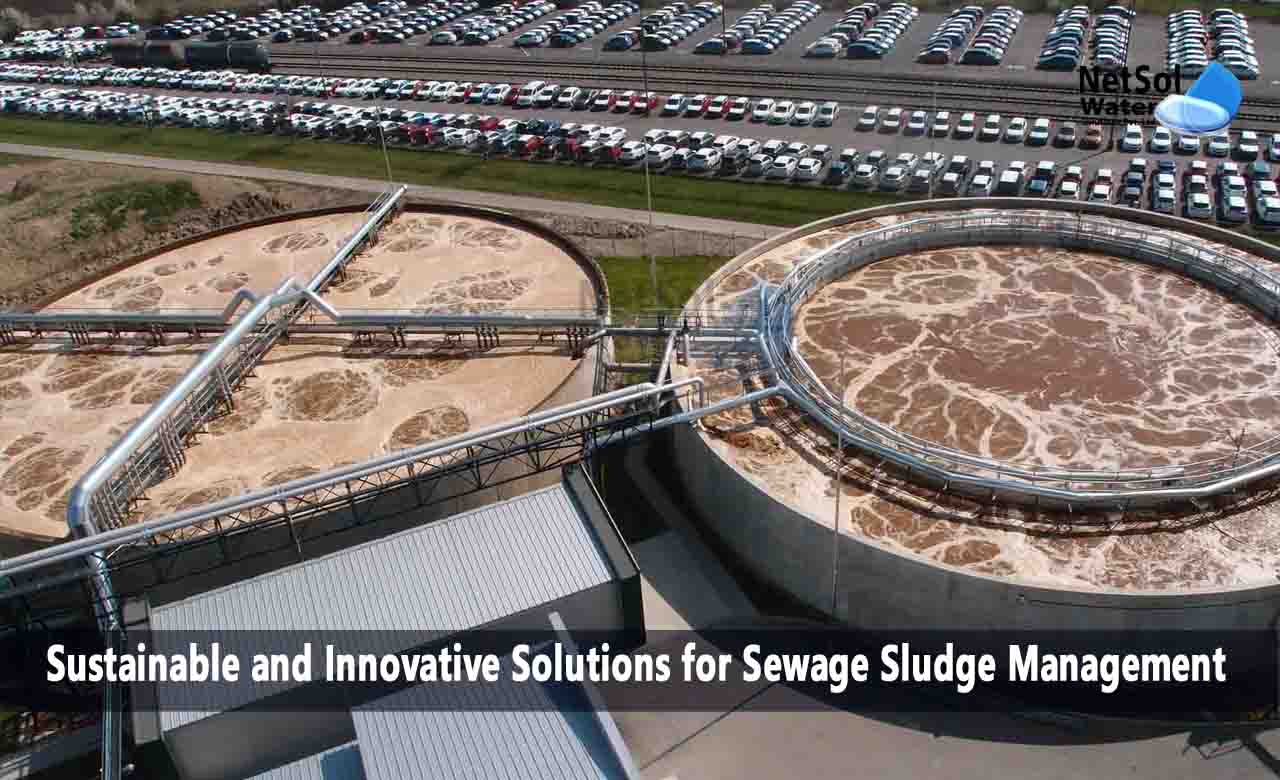Innovative Approaches for Sustainable Sewage Sludge Management
Sewage sludge, a byproduct of wastewater treatment, poses unique challenges in terms of disposal and management. With the growing emphasis on sustainability and environmental protection, it becomes crucial to explore innovative approaches for the sustainable disposal of sewage sludge.
In this blog, we will delve into the various aspects of sewage sludge management and discuss innovative strategies that can contribute to a more sustainable and resource-efficient approach.
Understanding Sewage Sludge
Sewage sludge refers to the residual solids that remain after the wastewater treatment process. It contains a mixture of organic matter, nutrients, heavy metals, pathogens, and other contaminants. Proper management of sewage sludge is essential to prevent environmental pollution and public health risks.
Challenges in Sewage Sludge Disposal
1. Landfilling: Historically, landfilling has been a common method of sewage sludge disposal. However, this approach contributes to the accumulation of waste in landfills and poses potential environmental risks, such as leachate contamination and greenhouse gas emissions.
2. Incineration: Incineration is another disposal option, but it requires significant energy inputs and can release pollutants into the atmosphere, including greenhouse gases and toxic substances.
3. Agricultural Application: Recycling sewage sludge for agricultural use is a common practice. However, concerns about heavy metal accumulation in soil and potential health risks have raised questions about its long-term sustainability.
Innovative Approaches for Sustainable Sewage Sludge Management
1. Anaerobic Digestion: Anaerobic digestion is a sustainable technology that converts organic matter in sewage sludge into biogas and biofertilizers. The biogas can be used for energy generation, while the nutrient-rich biofertilizers can be safely applied to agricultural land, promoting circular economy principles.
2. Thermal Hydrolysis: Thermal hydrolysis is a pre-treatment method that enhances the digestion process by breaking down complex organic compounds in sewage sludge. This process increases biogas production and improves the quality of the resulting biofertilizers.
3. Pyrolysis and Gasification: Pyrolysis and gasification are thermal conversion technologies that convert sewage sludge into biochar, syngas, and heat energy. These processes can significantly reduce the volume of sludge, minimize environmental impacts, and provide renewable energy sources.
4. Phosphorus Recovery: Phosphorus is a valuable and finite resource. Innovative technologies, such as struvite precipitation and thermal recovery, allow for the extraction and recovery of phosphorus from sewage sludge. This not only reduces the environmental impact of sludge disposal but also provides a valuable nutrient source for agricultural and industrial applications.
5. Bio-based Materials and Energy Generation: Sewage sludge can be used as a feedstock for the production of bio-based materials, such as bioplastics and biofuels. Additionally, it can be co-digested with other organic waste streams, such as food waste, to increase biogas production for renewable energy generation.
Regulatory Framework and Public Acceptance
To ensure the successful implementation of innovative sewage sludge management approaches, a supportive regulatory framework is necessary. Regulations should address environmental standards, quality control, and the safe application of treated sludge. Public acceptance and awareness campaigns are crucial for dispelling misconceptions and promoting the benefits of sustainable sewage sludge management practices.
Collaboration and Knowledge Sharing
Addressing sewage sludge management challenges requires collaboration among stakeholders, including wastewater treatment authorities, researchers, technology providers, and policymakers. Sharing knowledge, best practices, and lessons learned can accelerate the adoption of innovative approaches and foster continuous improvement in the field.
Summary:
Sustainable sewage sludge management is a pressing environmental concern, and innovative approaches offer promising solutions. By adopting technologies such as anaerobic digestion, thermal hydrolysis, pyrolysis, and gasification, as well as exploring phosphorus recovery and bio-based material production, we can transform sewage sludge from a waste into a valuable resource. Collaboration among stakeholders and supportive regulatory frameworks are key to achieving sustainable sewage sludge management practices and protecting the environment for future generations.
Netsol Water is Greater Noida-based leading water & wastewater treatment plant manufacturer. We are industry's most demanding company based on client review and work quality. We are known as best commercial RO plant manufacturers, industrial RO plant manufacturer, sewage treatment plant manufacturer, Water Softener Plant Manufacturers and effluent treatment plant manufacturers. Apart from this 24x7 customer support is our USP. Call on +91-9650608473, or write us at enquiry@netsolwater.com for any support, inquiry or product-purchase related query.



